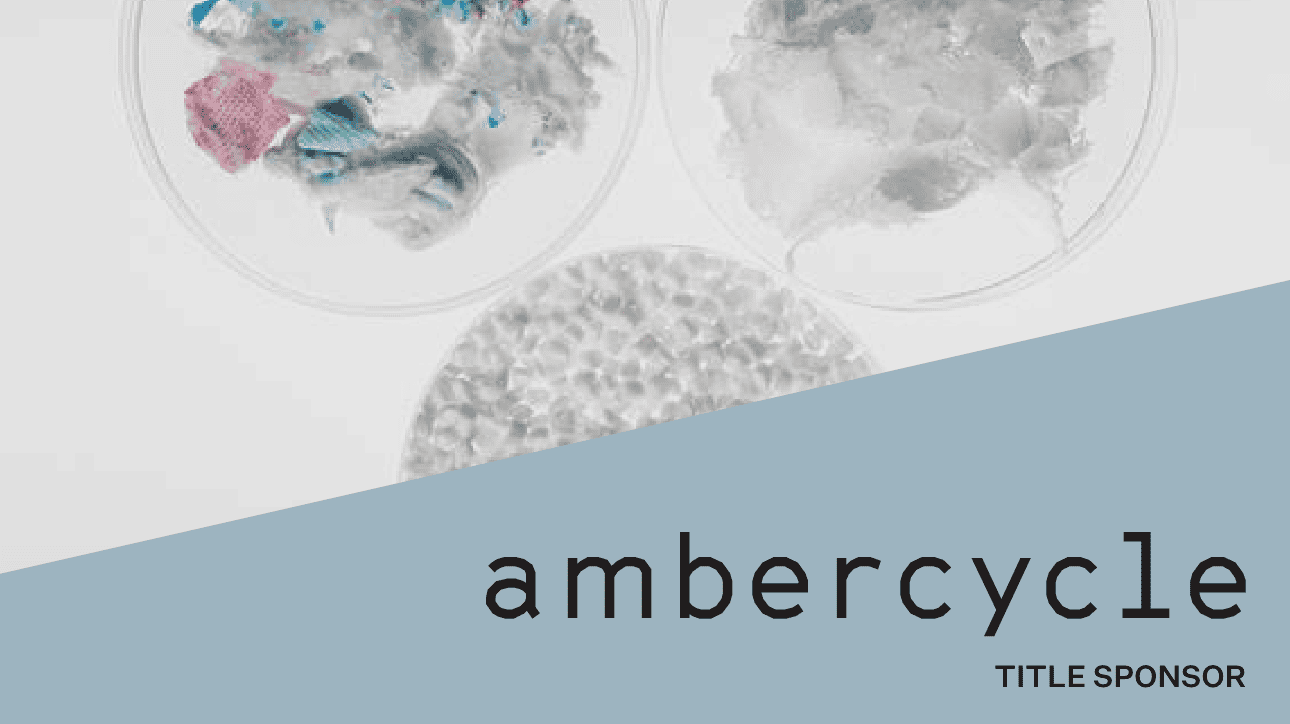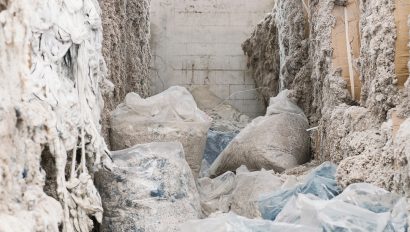Fixing Fashion’s Virgin Polyester Problem with Ambercycle

Meet Ambercycle, the title sponsor of the 2024 Textile Exchange Conference. Driven by the idea that textile recycling technologies were outdated, Ambercycle sought to develop a process that could separate and regenerate mixed materials at a molecular level. Ambercycle’s first commercially available fiber, known as cycora®, is made from post-consumer and post-industrial waste polyester that has been transformed into a virgin-grade material. Initially focused on technology development, the company is now scaling up and working on a soon-to-be-launched commercial facility. We spoke to co-founder Shay Sethi to find out more.
Can you briefly explain what molecular regeneration technology is?
We have developed a technology designed to separate and purify mixed textile materials at the molecular level, allowing waste materials to be reused as high-quality, virgin-like raw materials. The process is largely scalable and aims to address the massive textile waste problem by creating a circular economy where garments can be continuously regenerated.
How does chemical recycling differ from mechanical recycling?
Mechanical recycling involves reforming and remolding materials using heat, which can extend the life of the materials and create various functionalities for a material but usually leads to a slight decrease in quality over time. Chemical recycling, on the other hand, processes materials at the molecular level, maintaining their quality and enabling them to be reused repeatedly without degradation, making it a more sustainable solution for long-term circularity.
Why is the focus on polyester important for the fashion, apparel, and textile industry?
Polyester is the most widely used raw material, with over 71 million tonnes produced in 2023, and it has the highest carbon footprint among all materials, due to that volume. By starting with polyester as an output material, we aim to make a significant impact on reducing the carbon footprint of garments at the raw materials production stage. Over time, we plan to extend our technology to other materials like spandex and nylon, ultimately providing a sustainable alternative to virgin fossil-based materials in the apparel industry.
How do you manage the logistics of collecting and sorting textile waste for your process?
We work with various partners, including brands and secondhand clothing stores, SS to source both post-industrial and post-consumer materials. Our goal is to establish a supply chain that allows materials to go through a few cycles of reuse before reaching us for regeneration. We’ve invested significant time in understanding and building a traceable supply chain that integrates seamlessly with our process and partners and resonates with consumers.
How are you planning to scale the technology and what challenges are you facing on the way?
We’re working on a commercial-scale facility, primarily focused on polyester regeneration, to increase production capacity. Our first challenge is achieving cost equivalency with traditional materials due to the efficiency of long-established processes like oil refining. Additionally, we’re building an entirely new supply chain, which requires significant investment in research and development and collaboration with industry partners. We’re learning from the industry and the supply chain integration to incorporate that knowledge into creating the best solution possible.
How important are brand partnerships in your commercialization strategy?
Brand partnerships are crucial for us to tell a compelling story that clearly communicates the sustainability of products and makes consumers want to participate in circularity. We collaborate with a range of brands, from large companies like Zara to smaller brands like GANNI and designers, such as Tommy Bogo and Kozaburo, showcasing at fashion weeks. These partnerships help integrate our material cycora® across the fashion industry, making recycled options more accessible for customers.
What are your future goals for Ambercycle?
Our primary goal is to make decarbonized raw materials more widely available. In the long term, we plan to construct multiple processing facilities across the world and refine our supply chain to support global textile waste management.

